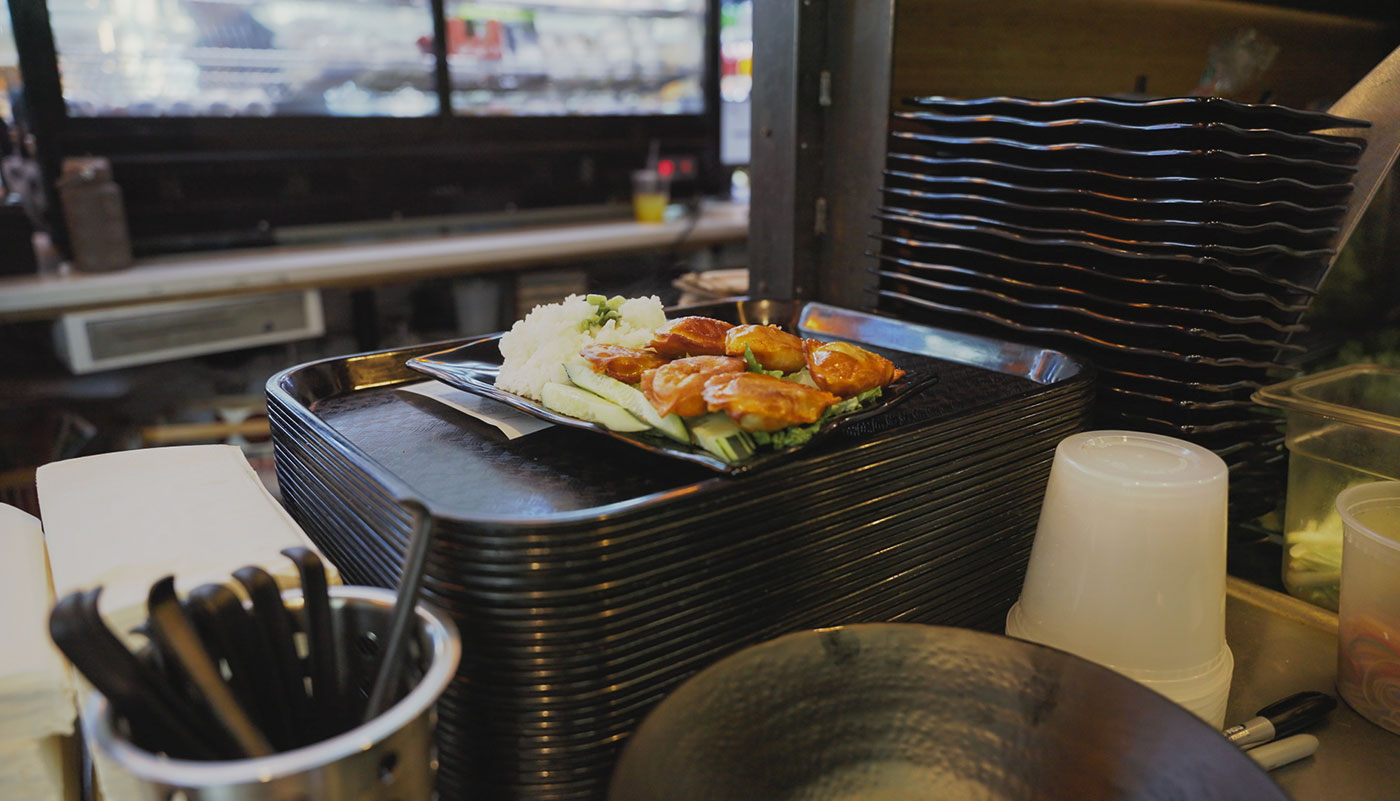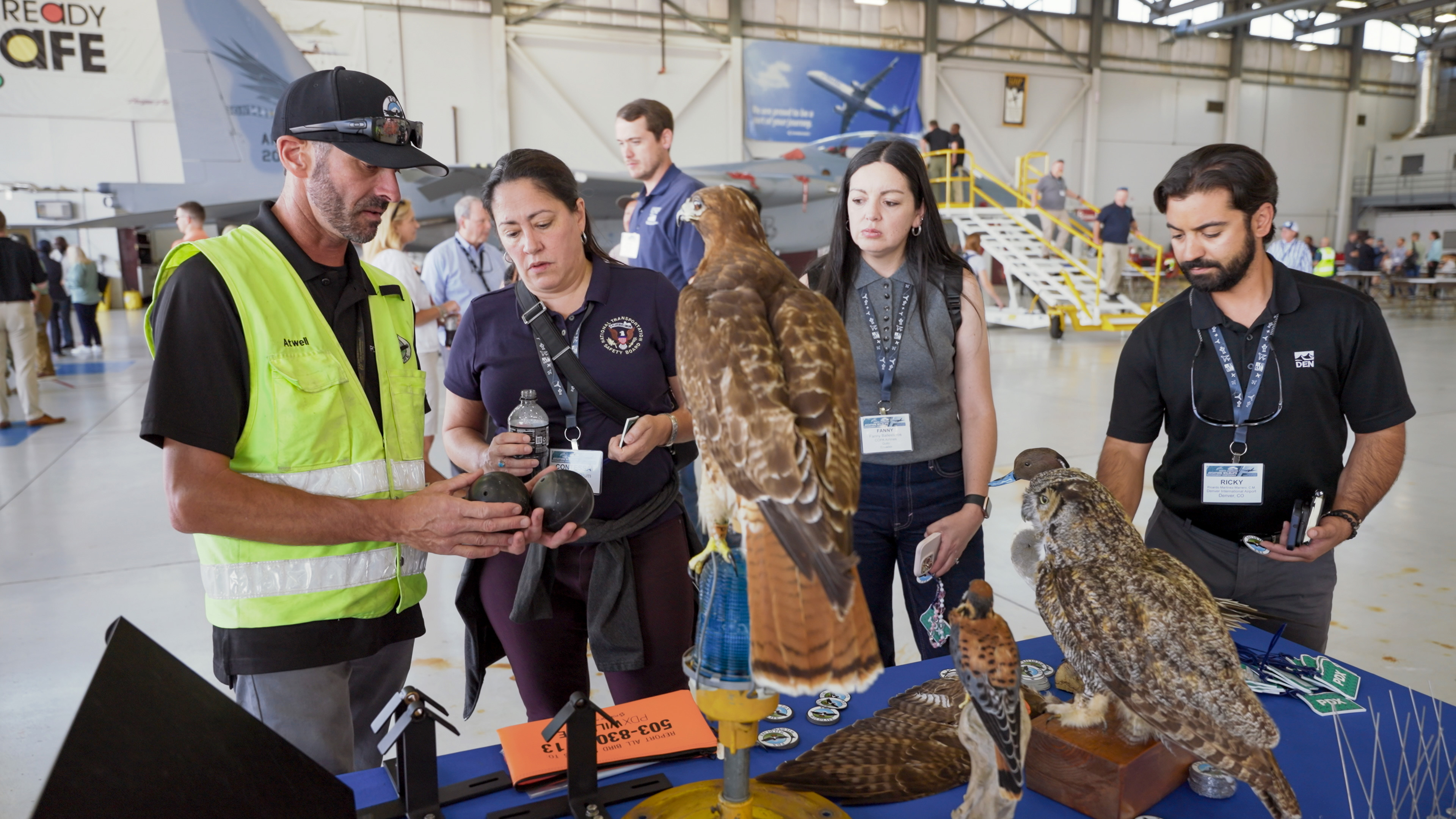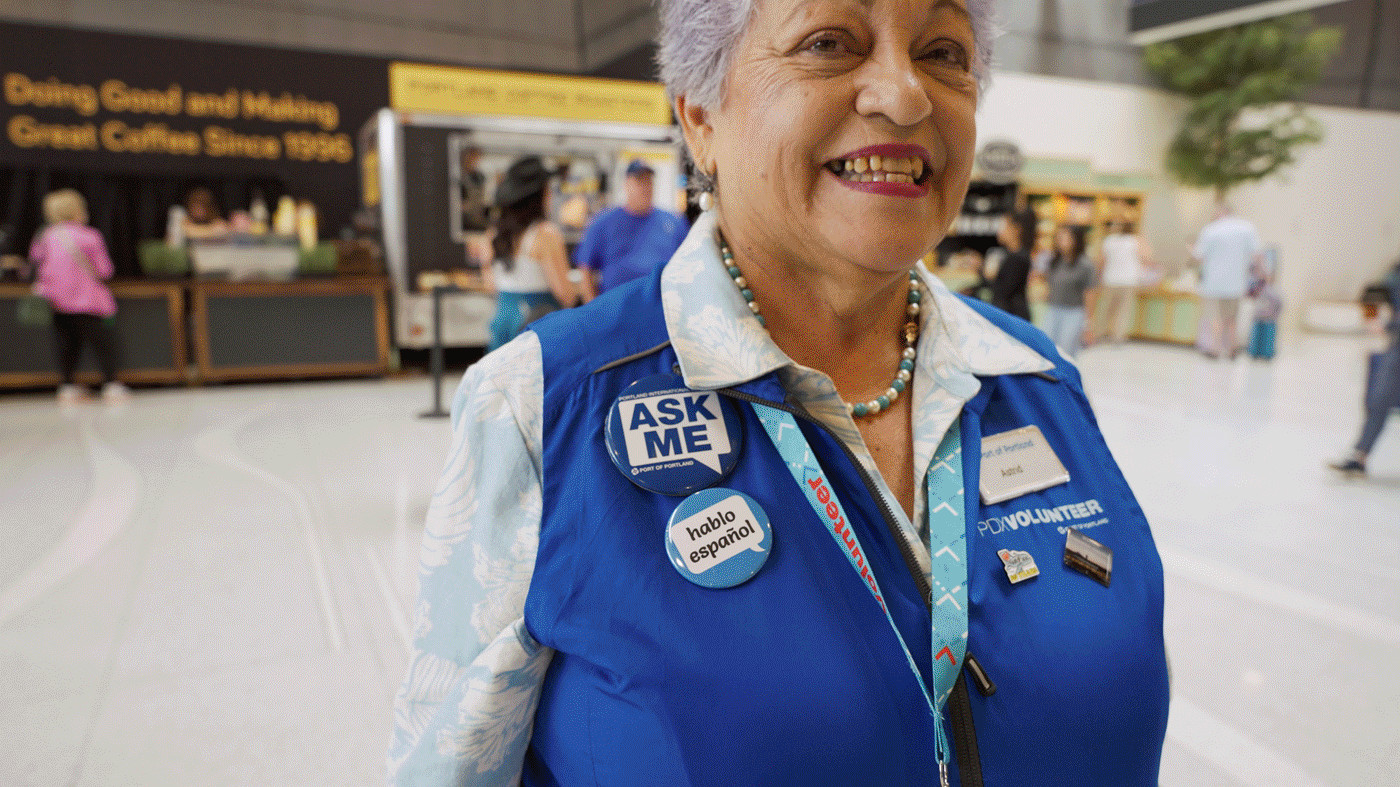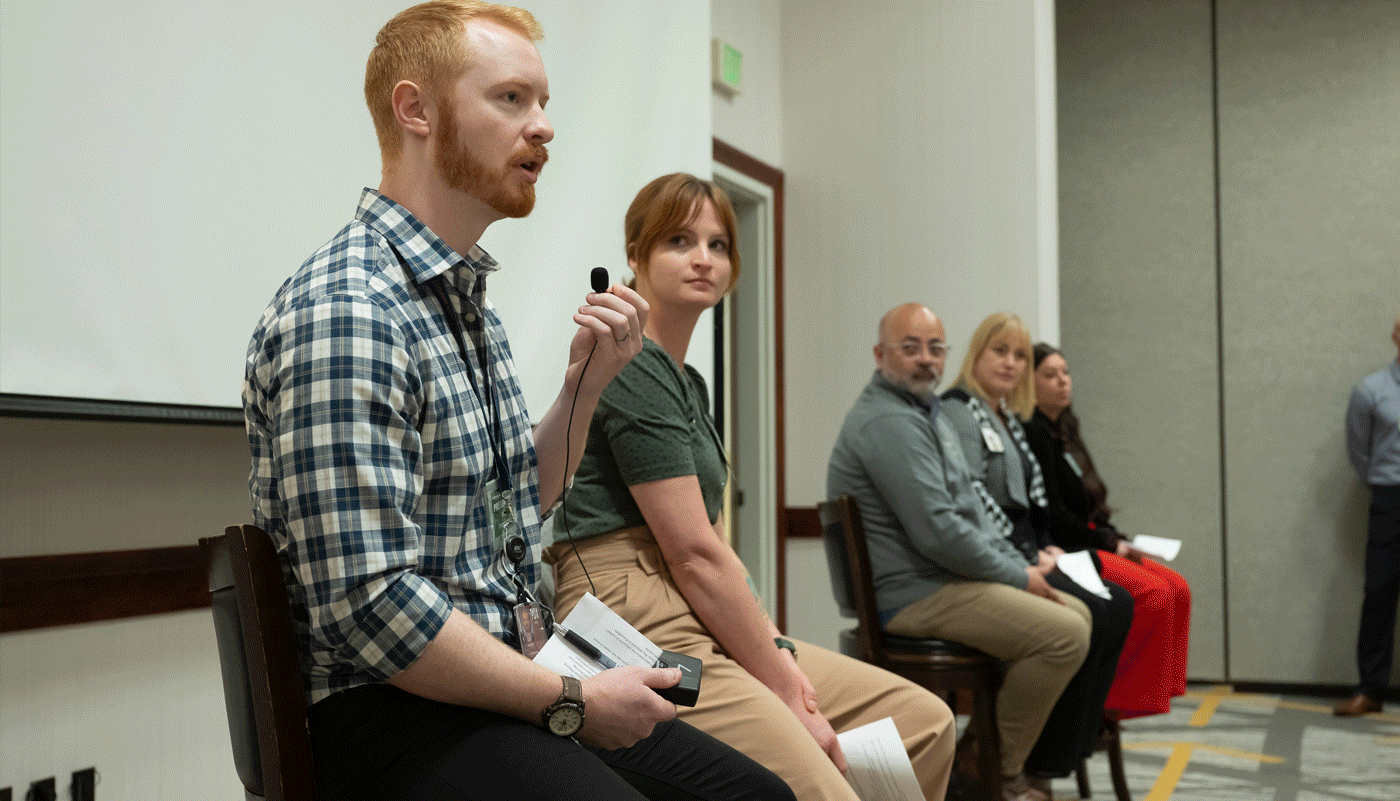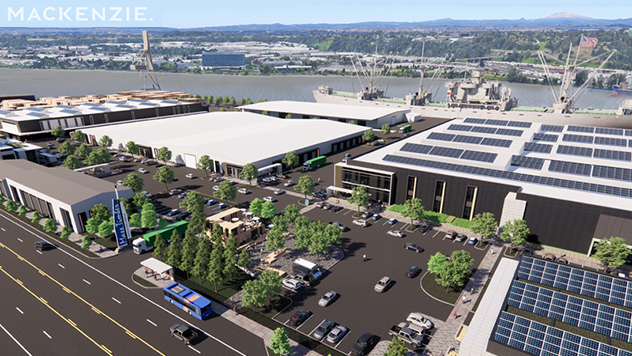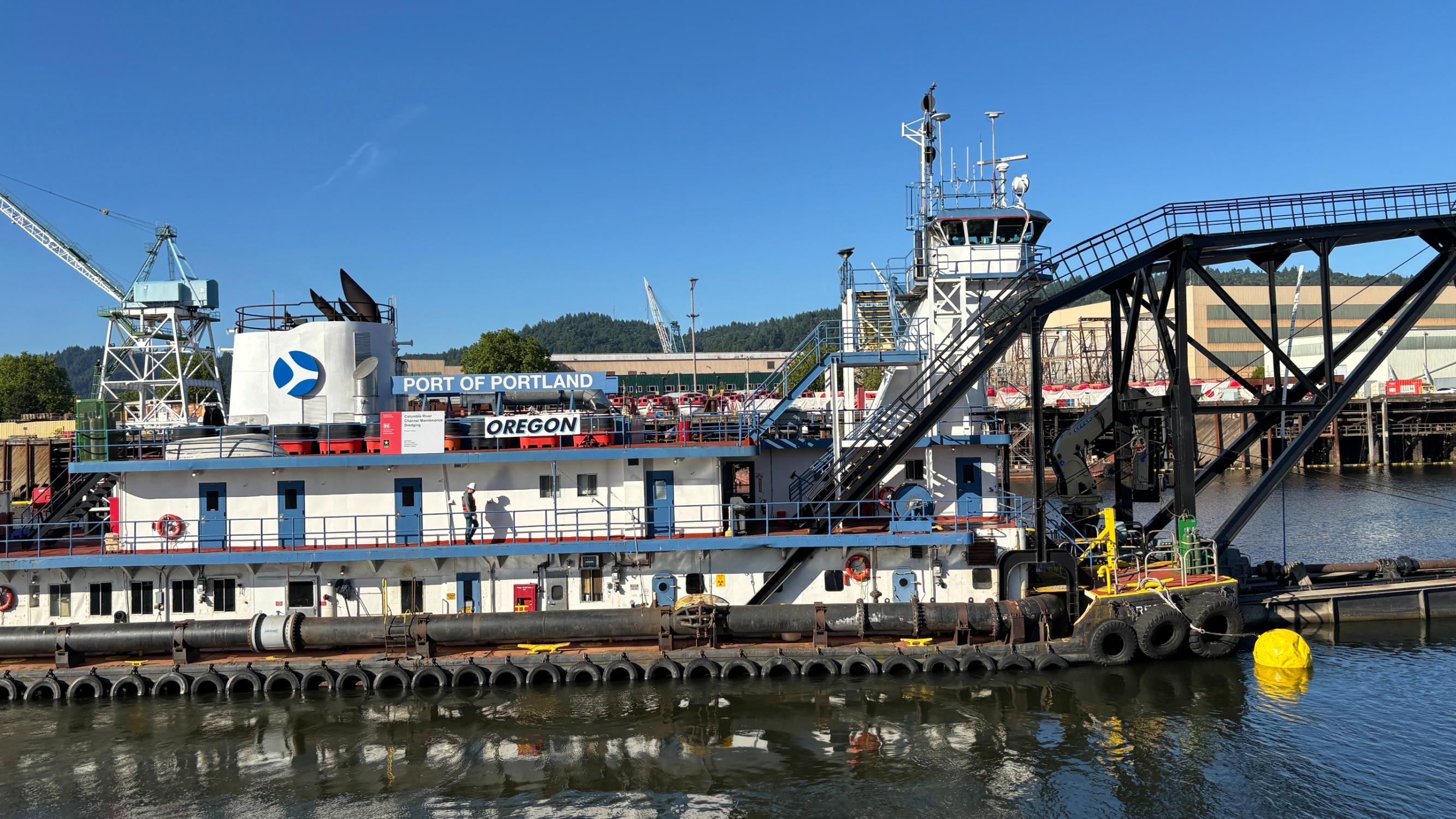Port receives State Land Board Award for West Sundial Wetlands
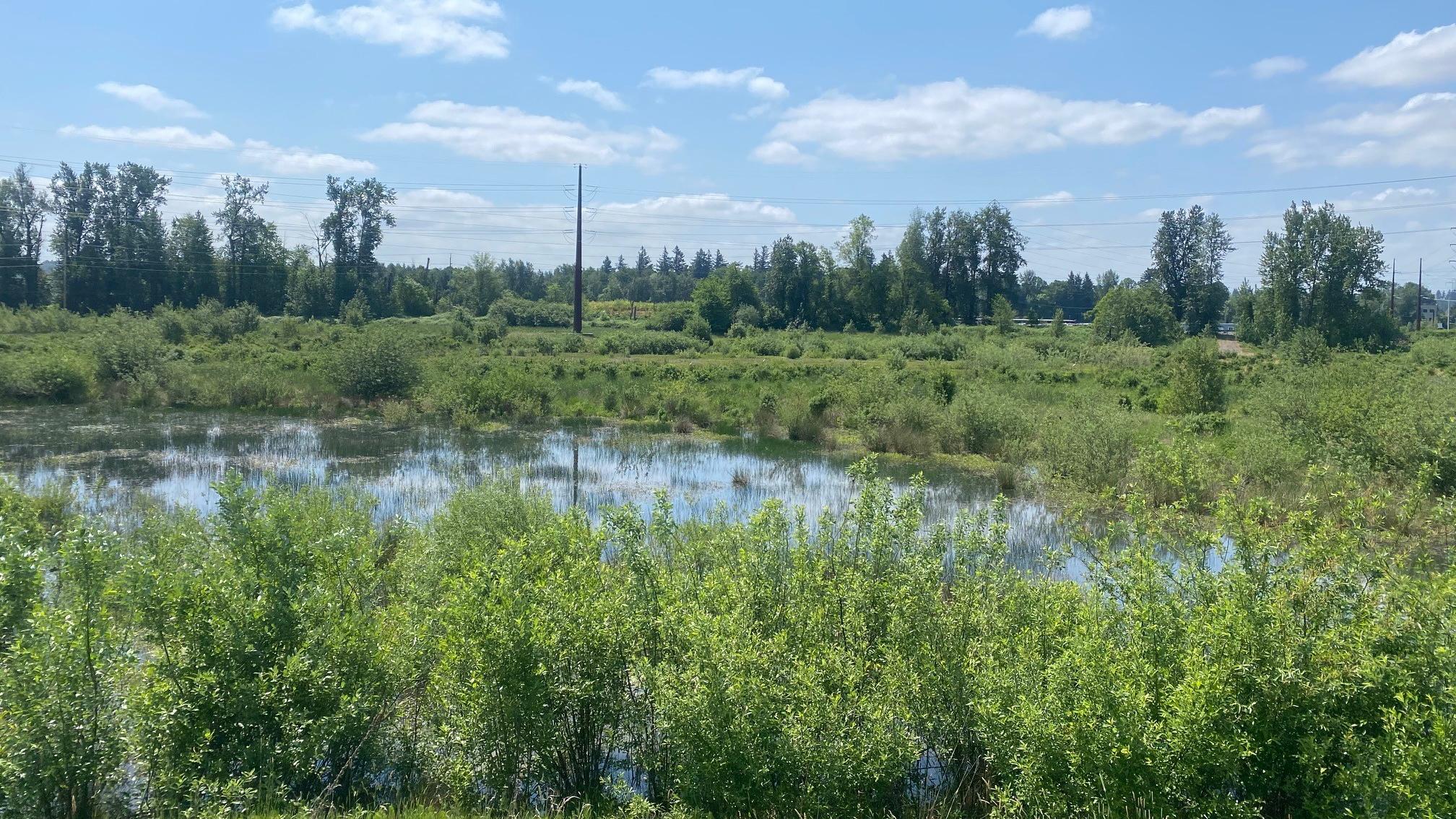
Press release in partnership with Oregon Department of State Lands:
Three projects and one individual were honored for their contributions to thriving Oregon waterways, wetlands, and lands by the State Land Board today.
Since the State Land Board Awards were established in 2004, the Land Board has presented awards to remarkable efforts in every region of Oregon.
"Each year, the State Land Board Awards shine a light on the Oregonians who are restoring, protecting, and reimagining our natural landscapes. This year’s honorees exemplify the power of partnership and the deep care so many bring to stewarding Oregon’s lands and waters. Their work strengthens our communities, our ecosystems, and our shared future,” said Governor Tina Kotek, who presented the awards with Secretary of State Tobias Read and State Treasurer Elizabeth Steiner.
The 2025 honored projects and partners are:
Wetland Award: West Sundial Wetlands
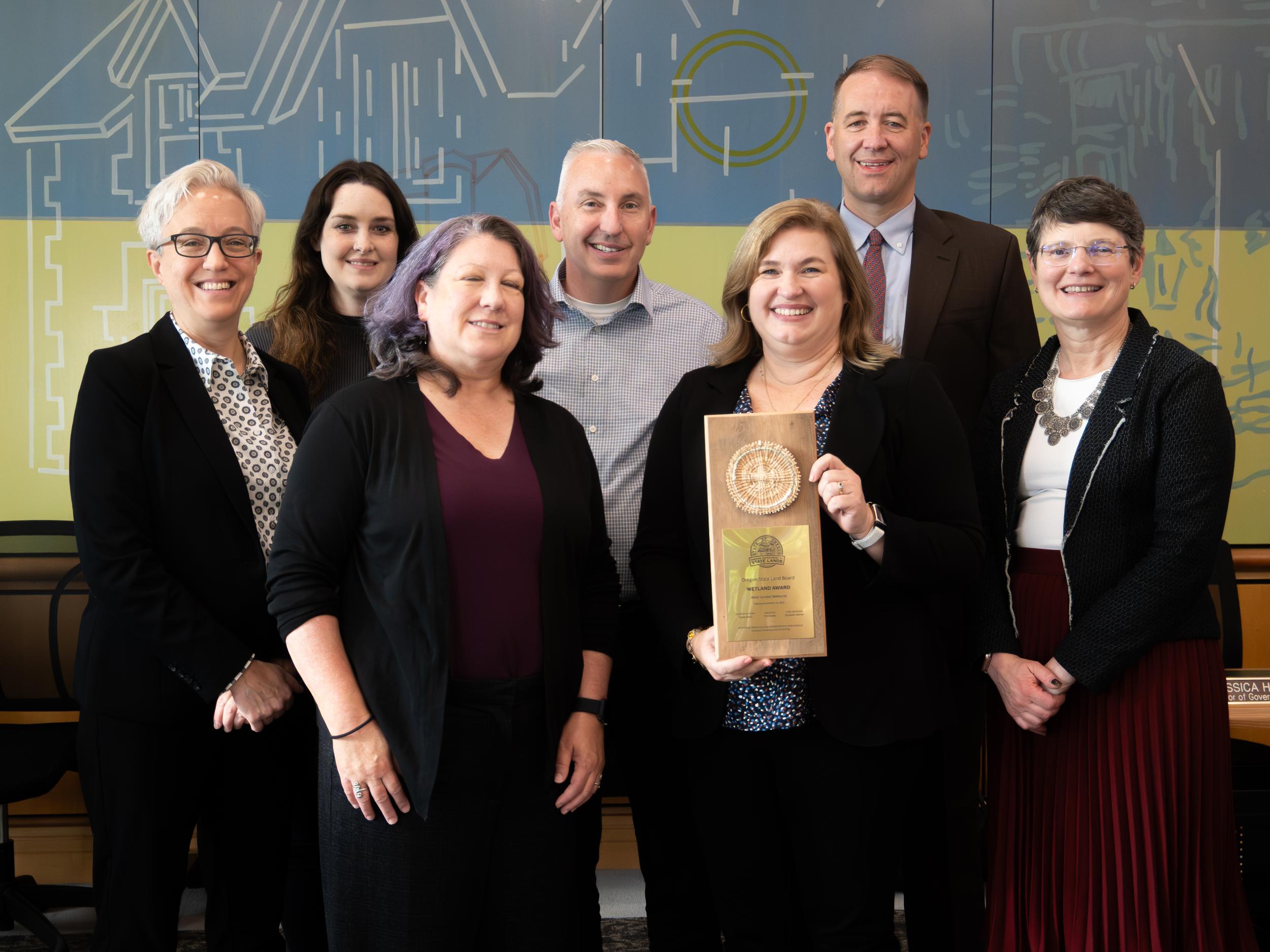
The West Sundial Wetlands mitigation project was part of the Port’s revitalization of a former brownfield into Troutdale Reynolds Industrial Park. The wetlands area spans over 82 acres in Troutdale, transforming a landscape once dominated by non-native pasture grasses and invasive forbs into a thriving wetland ecosystem. The project established a diverse mosaic of habitats, including forested wetlands, emergent wetlands, scrub-shrub wetlands, and upland buffer zones.
In addition to providing flood storage for the surrounding community, West Sundial Wetlands enhances habitat connectivity within the watershed – benefiting sensitive species such as the northern red-legged frog and a wide variety of wetland-associated bird species. The Ch’ak Ch’ak Trail, a 3-mile public trail located on the levee adjacent to the wetlands, offers visitors opportunities for wildlife viewing.
The project team worked closely with partners, including the Confederated Tribes of the Grand Ronde Community of Oregon, to ensure the preservation and protection of an archaeological site located near the wetlands. An interpretive panel along the Ch’ak Ch’ak Trail educates visitors about the area’s cultural and historical significance to Native peoples.
“The West Sundial Wetlands show what’s possible when we come together to do big things in a way that benefits the whole community: creating 82 acres of thriving habitat that protects against floods and supports wildlife,” said Curtis Robinhold, Port of Portland Executive Director. “We’re grateful to our partners, including Mosaic Ecology and the Confederated Tribes of the Grand Ronde Community of Oregon, who made it possible for this vision to become reality. Economic development and environmental stewardship go hand in hand, and together we can honor the land’s history while investing in its future.”
Project Leadership and Collaboration:
- Project Owners: Port of Portland, Kristina Kelchner
- Primary Project Team: Ken Anderton, Carrie Butler, Sarah Wilson
- Project Partners: Mosaic Ecology LLC
Stream Award: Sheep Creek Stewardship Project
On a tributary of the upper Grande Ronde River in Oregon’s Blue Mountain landscape, the Sheep Creek Stewardship Project reconnected 101 acres of wetland habitat and restored more than 8.6 miles of streams and smaller tributaries. This work was coordinated with a broader forest ecosystem restoration effort, creating a ridgetop-to-ridgetop restoration area designed to maximize benefits for wildlife habitat, wildfire resilience, and water quality.
Located in a high montane meadow ecosystem, the area is considered source water for downstream communities, including Perry, La Grande, Imbler, Elgin, Summerville, and the Grande Ronde Valley.
The team used a hybrid mix of restoration tools, making the project a standout example of innovation in wetland floodplain restoration – locally, regionally, and nationally. As critical habitat for Snake River chinook, steelhead, bull trout and many other native species, the project is already showing early signs of success: Beaver have recently returned to the stream system, signaling a positive shift for native flora and fauna.
Project Leadership and Collaboration:
- Project Owners: Trout Unlimited, U.S. Forest Service, and Bureau of Land Management
- Primary Project Team:
- U.S. Forest Service – Wallowa-Whitman National Forest
- Bureau of Land Management – Vale District
- Grande Ronde Model Watershed Council
- Wolf Water Resources
- Trout Unlimited
- Project Partners:
NW Youth Corps, US War Veterans Crew – North Fork John Day Watershed Council, Glacier Excavating, Anabranch Solutions, Wildlands Inc., Plantworks, Wolf Water Resources, Capitan Forestry, Streamside Services, Haskins Excavating, Cargill Fencing, and Hanging Rock Excavation
Catalyst Award: Kyle Waggoner
Kyle Waggoner may hold the title of Umatilla County Soil and Water Conservation District Manager, but in practice, he serves as the vital connective tissue between rural landowners and irrigators and the many natural resource agencies working in the region – including the Confederated Tribes of the Umatilla Indian Reservation (CTUIR), the National Oceanic and Atmospheric Administration’s National Marine Fisheries Service, the Oregon Department of Fish and Wildlife, the Oregon Department of State Lands, the U.S. Army Corps of Engineers, and the U.S. Bureau of Reclamation, among others.
From creating the Landowner’s River Resiliency Guidebook to playing a key role in the City of Pendleton’s successful $3.7 million grant for large-scale stream restoration and the McKay Creek Watershed Action Plan, Kyle has proven himself an impressive leader. His local roots, strategic mindset, and approachable personality make him an exceptional catalyst for conservation and restoration in Umatilla County.
Partnership Award: John Day Basin Partnership
The John Day Basin is the largest basin in Oregon managed for wild salmonids and is home to the longest free-flowing river in the state. Through a basin-wide strategic action plan, the John Day Basin Partnership – a coalition of 30 tribal, local, state, and federal partners – collaborates to support on-the-ground restoration efforts.
Over the past six years, the Partnership has implemented a series of phased projects that have achieved the following outcomes:
- 58 fish passage barriers remediated or removed
- Over 50 miles of stream habitat restored
- 230 acres of floodplain reconnected
- 681 acres of riparian habitat protected and improved with livestock exclusion fencing
- More than 250,000 native plants installed
- Over 1,100 beaver dam analogs constructed
These actions have improved aquatic habitat for sensitive species such as Middle Columbia River summer steelhead, bull trout, Chinook salmon, and Pacific lamprey. The Partnership also participates in a network of Intensively Monitored Watersheds across the Pacific Northwest – long-term, large-scale research projects designed to deepen understanding of how salmon and steelhead populations respond to river restoration.
The Partnership’s success is a direct result of the voluntary partnerships with John Day Basin's private, working lands, landowners who make these conservation and restoration projects possible.
Honoring Tradition Through Art
The artwork for this year’s awards consists of museum-quality woven rounds, crafted using traditional Indigenous basket-weaving techniques. Each piece features natural materials harvested from across Oregon’s diverse ecosystems – such as cedar bark, juncus, cattail, tule, hazel stick, and spruce or willow root. These unique creations represent both the ecological abundance of this place and the enduring cultural relationships Indigenous people have maintained since time immemorial.
The artist who created each award is Stephanie Craig, anqati təmtəm tənas siyaxus, (Takelma Rogue River, Cow Creek Umpqua, Santiam and Yoncalla Kalapuya, Clackamas Chinook, Wakanasisi, Mohawk, Métis, and American). Craig is a master basket weaver, anthropologist, educator, and cultural consultant. She is the founder of Kalapuya Weaving and Consulting and Rooted Ways: An Indigenous Cultural & Ecological Initiative, a nonprofit dedicated to preserving Indigenous knowledge through weaving, land restoration, and cultural education. Her weaving continues the traditions of the al’halpam and ayankalat Kalapuya people, honoring ancestral teachings and materials gathered across Oregon, ensuring these lifeways endure for future generations.
The reclaimed wood plaques for the awards were made by volunteers from the community of St. Johns, Portland.
